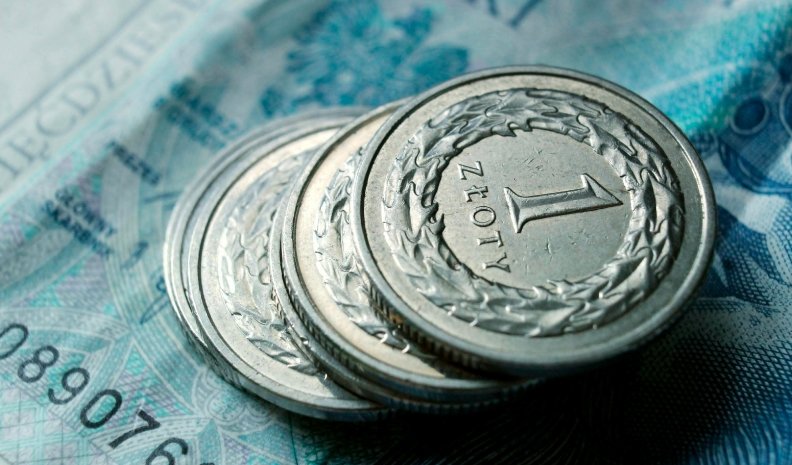In a significant geopolitical maneuver, Russia is set to trial cross-border cryptocurrency payments to bypass international sanctions. This initiative, spearheaded by President Vladimir Putin, aims to mitigate the economic impact of sanctions imposed by Western nations following Russia’s invasion of Ukraine. The trial, which begins next week, will be overseen by Russia’s central bank under an experimental legal regime. However, experts remain skeptical about the effectiveness of this strategy due to the inherent traceability of blockchain transactions and the potential for even stricter sanctions.
Russia’s Crypto Strategy
Russia’s decision to explore cryptocurrency payments is a direct response to the extensive sanctions that have crippled its economy. The sanctions, which include the freezing of foreign currency reserves and the disconnection of Russian banks from the SWIFT system, have severely restricted Russia’s financial operations. By leveraging cryptocurrencies, Russia hopes to facilitate international trade and financial transactions without relying on traditional banking systems.

Despite the ambitious nature of this plan, there are significant challenges. Blockchain technology, while decentralized, is not entirely anonymous. Transactions can be traced, and this transparency could expose Russia to further sanctions. Additionally, the legal framework for these transactions is still under development, adding another layer of complexity to the initiative.
Potential Implications
The trial of cross-border crypto payments could have far-reaching implications for global finance and geopolitics. If successful, it could pave the way for other sanctioned nations to adopt similar strategies, potentially undermining the effectiveness of international sanctions. This could lead to a shift in the global financial landscape, with cryptocurrencies playing a more prominent role in international trade.
However, the risks are equally significant. The use of cryptocurrencies for circumventing sanctions could prompt a regulatory crackdown on digital currencies, affecting their adoption and value. Moreover, the success of this initiative hinges on the cooperation of international partners, who may be reluctant to engage in transactions that could attract secondary sanctions.
Expert Opinions
Experts are divided on the potential success of Russia’s crypto strategy. Some believe that the traceability of blockchain transactions will ultimately limit the effectiveness of this approach. Others argue that the decentralized nature of cryptocurrencies could provide Russia with a viable alternative to traditional financial systems.
Valerie Kennedy, director of investigations at blockchain analytics firm Chainalysis, notes that while the move signals Russia’s evolving strategy to counter sanctions, it also highlights the challenges of avoiding the U.S. dollar and euro via the SWIFT system. The risk of secondary sanctions remains a significant deterrent for potential international partners.
Anti Danilevski, founder and CEO of Kick Ecosystem, emphasizes the importance of a robust legal framework for the success of this initiative. He points out that the experimental legal regime is still in the works, and its effectiveness will depend on the proposals and suggestions from domestic stakeholders.
Finn Wells is a proficient news writer at Crypto Quill, specializing in delivering the latest updates on Bitcoin and altcoins to readers worldwide. With a keen interest in the ever-changing landscape of digital currencies, Finn’s articles provide insightful analysis and up-to-the-minute news on the cryptocurrency market. Known for his meticulous research and commitment to accuracy, Finn brings a fresh perspective to the world of blockchain technology. Stay informed with Finn’s comprehensive coverage of Bitcoin and altcoins, as he continues to illuminate the crypto space with his expertise and dedication at Crypto Quill.

 Bitcoin
Bitcoin  Ethereum
Ethereum  Tether
Tether  XRP
XRP  USDC
USDC  Solana
Solana  Dogecoin
Dogecoin  Cardano
Cardano  TRON
TRON  Lido Staked Ether
Lido Staked Ether  Wrapped Bitcoin
Wrapped Bitcoin  LEO Token
LEO Token  Toncoin
Toncoin  Chainlink
Chainlink  USDS
USDS  Stellar
Stellar  Wrapped stETH
Wrapped stETH  Avalanche
Avalanche  Sui
Sui  Shiba Inu
Shiba Inu  Hedera
Hedera  Litecoin
Litecoin  MANTRA
MANTRA  Polkadot
Polkadot  Bitcoin Cash
Bitcoin Cash  Bitget Token
Bitget Token  Ethena USDe
Ethena USDe  Binance Bridged USDT (BNB Smart Chain)
Binance Bridged USDT (BNB Smart Chain)  WETH
WETH  Wrapped eETH
Wrapped eETH  Hyperliquid
Hyperliquid  WhiteBIT Coin
WhiteBIT Coin  Monero
Monero  Pi Network
Pi Network  Uniswap
Uniswap  Dai
Dai  Aptos
Aptos  sUSDS
sUSDS  NEAR Protocol
NEAR Protocol  Pepe
Pepe  OKB
OKB  Coinbase Wrapped BTC
Coinbase Wrapped BTC  Gate
Gate  Tokenize Xchange
Tokenize Xchange  Cronos
Cronos  Ondo
Ondo  Mantle
Mantle  Internet Computer
Internet Computer  Ethereum Classic
Ethereum Classic  Ethena Staked USDe
Ethena Staked USDe  Aave
Aave  Cosmos Hub
Cosmos Hub  BlackRock USD Institutional Digital Liquidity Fund
BlackRock USD Institutional Digital Liquidity Fund  Official Trump
Official Trump  VeChain
VeChain  Bittensor
Bittensor  Lombard Staked BTC
Lombard Staked BTC  Filecoin
Filecoin  Render
Render  Celestia
Celestia  Ethena
Ethena  POL (ex-MATIC)
POL (ex-MATIC)  Algorand
Algorand  Sonic (prev. FTM)
Sonic (prev. FTM)  Arbitrum
Arbitrum  KuCoin
KuCoin  Solv Protocol SolvBTC
Solv Protocol SolvBTC  Optimism
Optimism  Artificial Superintelligence Alliance
Artificial Superintelligence Alliance  Binance-Peg WETH
Binance-Peg WETH  Jupiter
Jupiter  Maker
Maker  Story
Story  NEXO
NEXO  Quant
Quant  USDT0
USDT0  Movement
Movement  Binance Staked SOL
Binance Staked SOL  Worldcoin
Worldcoin  Rocket Pool ETH
Rocket Pool ETH  Stacks
Stacks  Binance Bridged USDC (BNB Smart Chain)
Binance Bridged USDC (BNB Smart Chain)  DeXe
DeXe  Usual USD
Usual USD  Bonk
Bonk  Immutable
Immutable  Injective
Injective  Polygon Bridged USDT (Polygon)
Polygon Bridged USDT (Polygon)  Sei
Sei  The Graph
The Graph  Theta Network
Theta Network  Tether Gold
Tether Gold